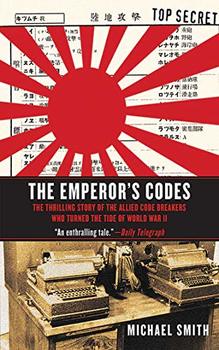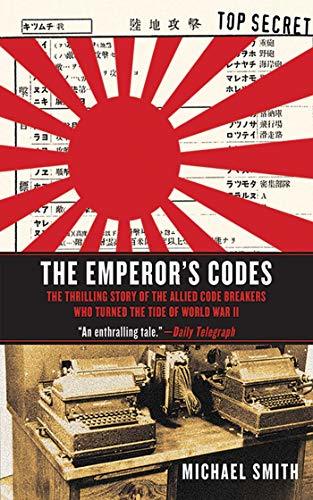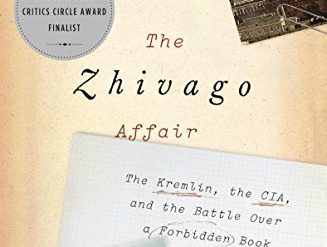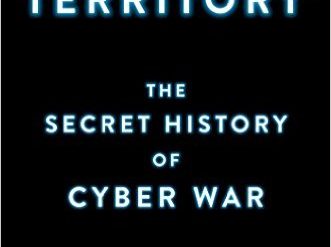
Americans have long believed it was homegrown efforts that succeeded in deciphering the World War II Japanese military and diplomatic codes — and that belief is significant, because otherwise the Battle of Midway and other pivotal events in the Pacific War might have gone differently. But here’s Michael Smith, who asserts in The Emperor’s Codes that it was actually British code-breakers who were largely responsible.
Smith writes that Britain’s Official Secrets Act prevented the release of this information for decades after World War II, while the Americans rushed to claim success even before the war had ended. However, given the story as he tells it, the truth seems to lie not in either camp but as expressed in the book’s subtitle: The Thrilling Story of the Allied Code Breakers Who Turned the Tide of World War II. Though shakily at times, and in some ways not at all, Britain and the US closely collaborated on intelligence matters. Both countries made significant contributions to breaking the Japanese codes. Neither could have accomplished it unassisted.
The Emperor’s Codes: The Thrilling Story of the Allied Code Breakers Who Turned the Tide of World War II by Michael Smith (2001) 368 pages ★★★☆☆
A plethora of World War II Japanese codes
In the popular histories of the Pacific War, most of the attention has gone to the so-called Purple cipher and the Japanese naval code designated JN25, which apparently were the most significant of the World War II Japanese encryption systems. American authors tend to credit the US with having cracked both of them, while Smith asserts that collaboration with the British at Bletchley Park and in Asia was crucial. What Smith also makes clearer than many other authors, however, is that the Japanese — like all the major combatants — employed many different codes and ciphers in the course of the war. And there were frequent changes that challenged code-breakers even within each of them.
Deciphering all these systems required the work of hundreds of people around the world and often around the clock. And at no point did either the Americans or the British arrive at a permanent solution to Japanese encryption. The same was true, by the way, of the famous German Enigma codes, which went through a long series of changes and enhancements.
An account that falls flat
Reading The Emperor’s Codes is sometimes a challenge. Unlike Ben Macintyre and other better-known authors who have written about espionage in World War II, Smith dwells on process and procedures, not people. Even the individuals who served the longest and at the highest levels of the British and American code-breaking operations drift in and out of the story, never coming clearly into focus. The result is a tale that falls flat.
About the author
There are, of course, many authors named Michael Smith, and that presented a challenge for me to learn anything about his background. But apparently this Michael Smith is a former British military and intelligence officer and journalist who has written more than a dozen books about espionage. He was born in 1946 and lives in London.
For further reading
Check out:
- The Secret War: Spies, Ciphers, and Guerrillas, 1939-1945 by Max Hastings (A revionist history of intelligence in World War II)
- Geniuses at War: Bletchley Park, Colossus, and the Dawn of the Digital Age by David A. Price (The top-secret story of the first digital computer)
- Bletchley Park and D-Day: The Untold Story of How the Battle for Normandy Was Won by David Kenyon—How Bletchley Park helped the Allies win on D-Day
You might also enjoy:
- 10 top nonfiction books about World War II
- The 10 best novels about World War II
- 7 common misconceptions about World War II
- The 10 most consequential events of World War II
And you can always find my most popular reviews, and the most recent ones, on the Home Page.



























